

Busybird
Welcome to the Busybird blog, where you can find helpful articles, updates, industry news and more. Make sure you stay up to date by signing up to our newsletter below.
5 Pitfalls to Writing Self-Help
August 12, 2020Self-help books are big at the moment. Let’s face it, the world feels a little broken and everyone is looking for a quick fix. Most notable is the fact that we have everything and yet there are so many unhappy people who can’t understand where they went wrong.
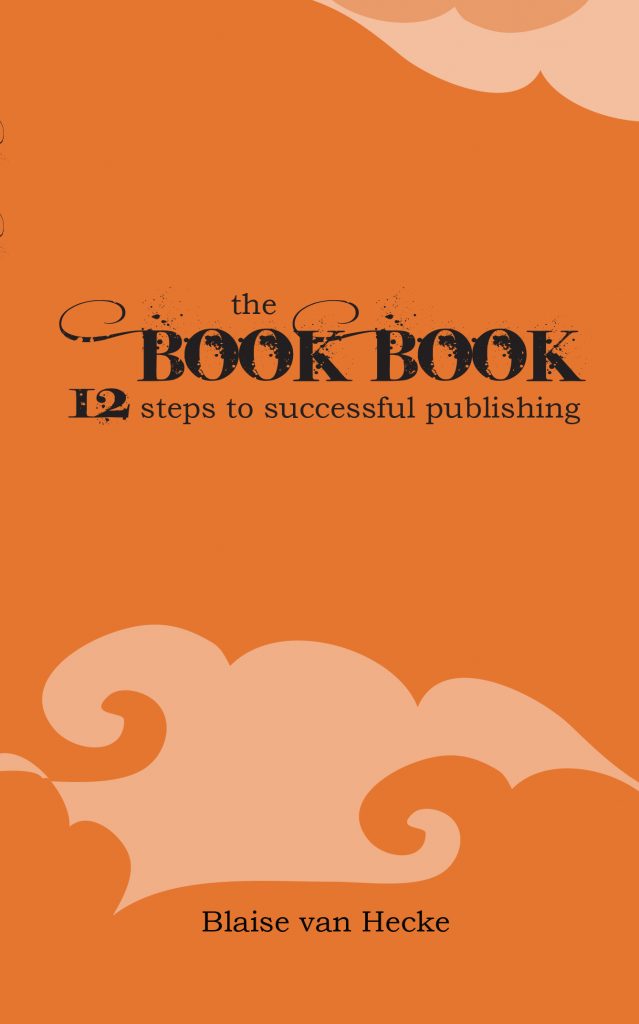
This means that there is a big market for self-help. You just need to name a problem and promise a solution. Easy, right? It is actually easy but so many people get it wrong. Here are some pitfalls to avoid in order to get your book into reader’s hands.
Unfocused product
You might have a ton of experience over a number of different things because of your life experience. It might be certain business skills, wellbeing tricks you’ve learned and you may have survived cancer thanks to a variety of tools you have acquired. This doesn’t mean that your whole life experience needs to go into your book. You may actually have two or three books worth of content. Be focused about what your book is about.
Too much story
If you have focused what your book is about, this hopefully won’t be an issue but there is a tendency with many, many authors to put everything they know into the book. Before you know it, you have written 100,000 words. No one will want to read it because ‘quick fix’ is what they want.
Overuse of ‘I’
Don’ be a Donald Trump. While you may be talking about the wealth of experience that you have, make sure you are relatable to the reader. Show them how they can benefit from this book. Use ‘you’ and ‘our’ more than ‘I’ unless you are relating an actual anecdote to demonstrate a point.
No solutions
Don’t make promises to the reader about how this book will solve their problems, but not show them how. It will just make them irate. Show them a problem, along with the how to fix it. This means giving clear instructions that go from A to B showing the reader how they can help themselves fix things. Hence the term Self-Help book.
A flooded market
Once you have focused on what you want to write about make sure you check out other books on the market to ensure you aren’t reinventing the wheel. Going to Amazon or GoodReads is a good start. Think of some tag words that people might use to find your book and see what comes up. You may see lots of similar books. This doesn’t mean you shouldn’t write yours but if you do, think about what your point of difference is.
There are of course many other aspects to writing your book to consider but these are the most common that I see. If you are really serious about writing a book, I will be running an online 3-hour workshop. Check it out here. Or, if you are ready to publish, check out my book here.
Happy writing!
Blaise, the book chick
Your Life Writing: Tap into Your Emotions
June 10, 2020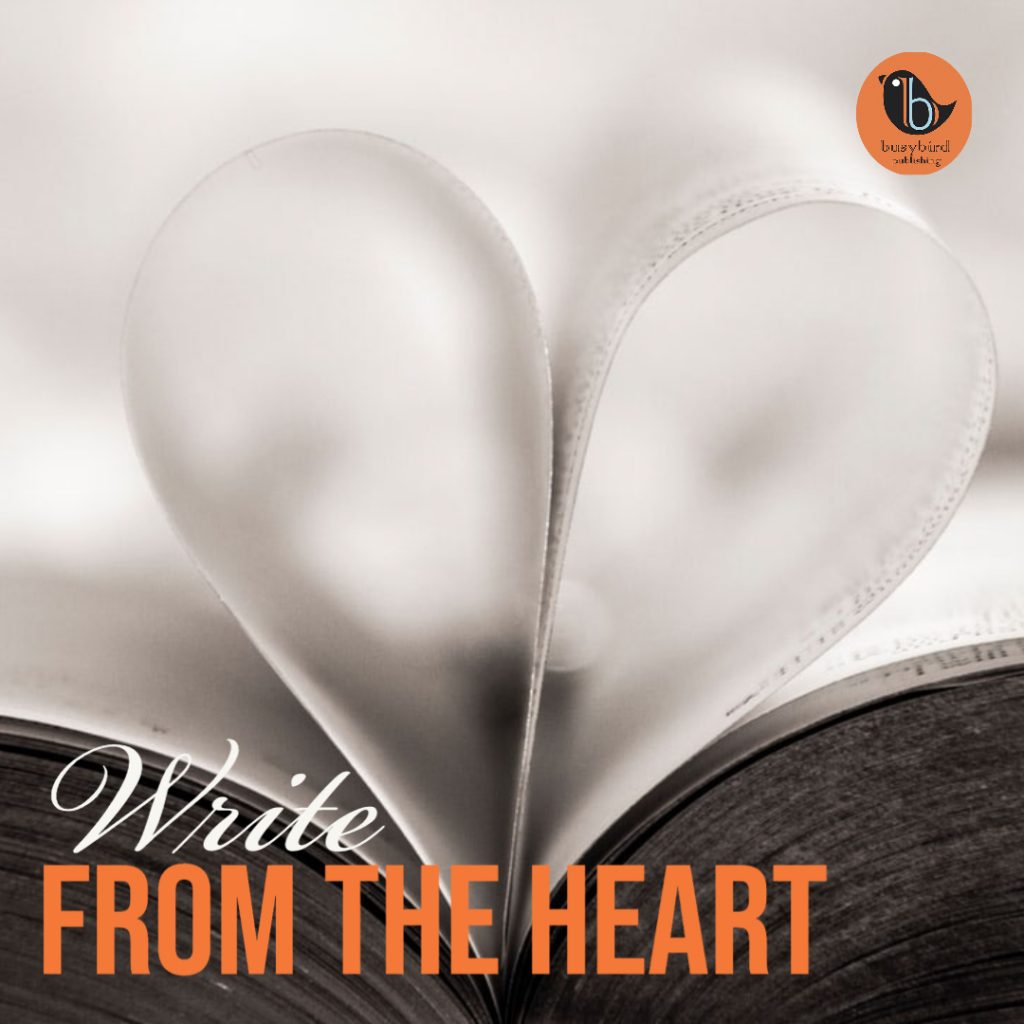
There are many reasons why you might write about your life. You may have had an adventurous journey that people will be interested in reading about, or you have overcome trauma and come out of it stronger and happier than ever with a lot of great experience to pass on to someone else. It might just be a bucket list item or you want to leave a legacy for your children. Whatever the reason, you’ll find this expedition rewarding in many ways.
The most common hurdles that I come across when working with people writing their story are not knowing where to start and thinking they don’t know how to write. Like anything, when you break it down it becomes less of a daunting task.
By tapping into your emotions, you will draw deeper into your story. I call this writing from the heart. This takes courage. For some writers, they are not ready to ‘go there’ yet. The event they’re writing about may be too recent and will present them with too-raw emotions. Even events from far back in your past can bring up emotions that you haven’t dealt with properly or you may not realise there are emotions attached to them.
How do you tap into these emotions?
Write it out!
There are a number of writing exercises that you can try but one that I use often with workshop participants is this: Write a letter of gratitude.
Pick someone from your life (past, present, dead or alive) who has had an impact on your life. This influence can be positive or negative. This is one of those exercises that can go anywhere depending on the choice you make. The idea is to thank this person for what they brought to your life. How fully are you going to turn that tap? The more water you let out, the more emotions will flow. If emotions don’t come, think about what you’re writing about or the person you’ve chosen. Are you playing it safe?
Once you’ve made your choice, sit with it for a minute or so and think about this person from all angles. Write a few specific words. How does this person make you feel? Angry, sad, nostalgic, frustrated, happy? Don’t over think this because it should be as free flowing as possible. Remember the tap, the free-flowing water. Writing will be like this if you don’t overthink it.
Now set your watch to ten minutes and write your letter.
When the timer goes off you may still have more to write. That’s okay. This is an exercise to get you going. You may or may not use this in your story but with practice, you will learn how to switch it on. It takes courage to open yourself fully and write authentically. You need to do this if you want to connect with your reader. Don’t be an old, rusty tap.
Try this exercise a few times, thanking a different person. Why not write one to yourself or your pet?
If you need help to get started on your life writing, we can help you through our online workshop this coming Saturday. Check it out here.
Blaise the book chick
Your publishing opportunities
May 27, 2020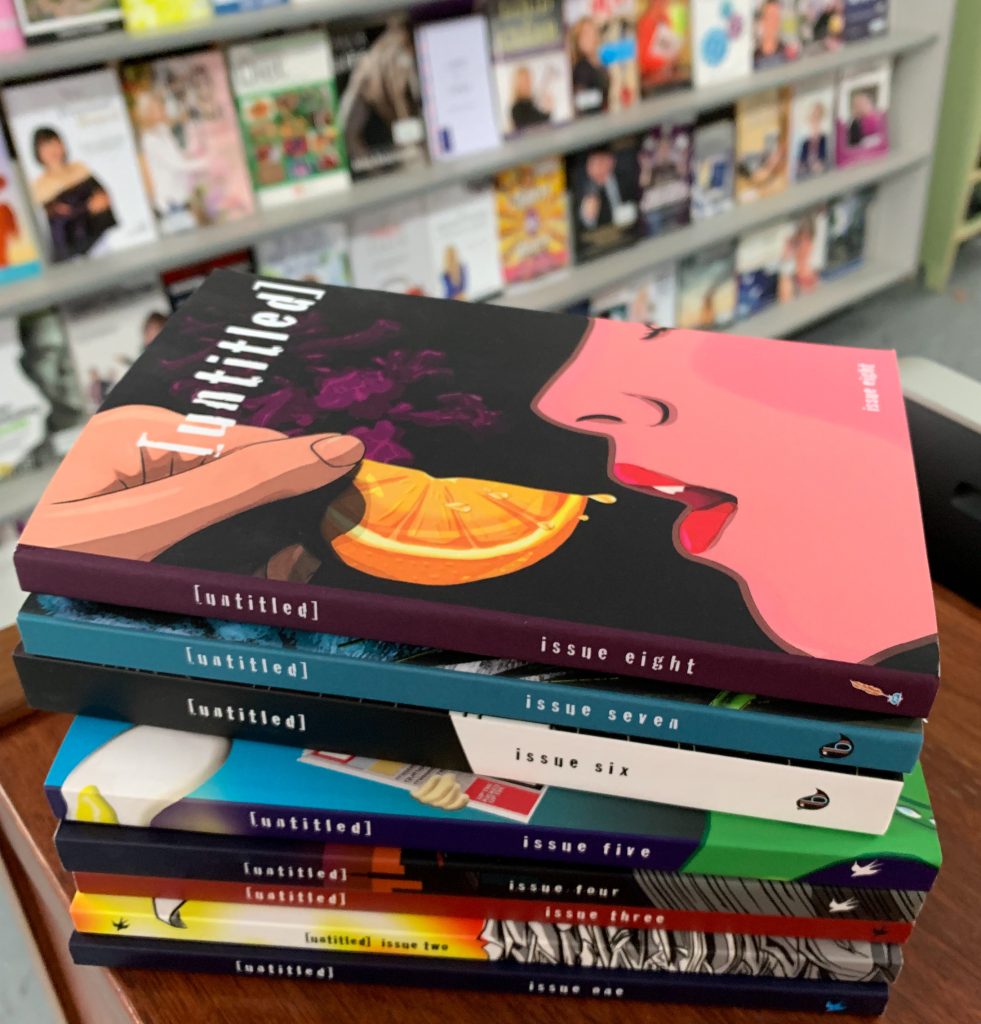
Do you know your publishing opportunities? It’s all very well to write something and think it will be published just because you wish it so. The more publishing history you have, the more chances are that your story will be wanted by a publisher. There are so many options and to get the best outcome for your story, you should look at what your options are.
Writing competitions
No matter what you are writing – essay, short story, novel or memoir – there’s bound to be a writing competition that will suit you. The great things about competitions are that there is usually prize money and if you win your story will be published. Don’t enter if publication isn’t part of the competition. Another reason to enter a competition is that it will give you a goal to complete your story by the deadline of the competition, and to make it as good as you can.
Magazines
There are often call outs from magazines (print and digital) for articles or short stories on specific topics. It’s worth a look on Google to see what’s out there. Be mindful of word counts for these as they are strict and need to adhere to space, hence the word limit.
Anthologies
There are lots of anthologies out in the marketplace that publish short stories and articles. Again, it’s a matter of researching what is out there. Some anthologies ask you to contribute to the cost of publication, others will pay you. Avoid paying to publish if they ask you to pay for a large quantity of books. Always, when paying to publish, look at the fine print and look for negative reviews about the publication.
Small press
We have a very strong small press industry in Australia. To find out more about some of these publishers, check out the Small Press Network (SPN). We’re members of this fabulous group. Small Press publishers don’t have the overheads of some of the big publishers and so are not as risk averse. There may be an opportunity for you to be published by one of them.
Large publishers
Of course, we’d all love to land a contract with Hachette or Penguin or Allen & Unwin but it’s a waiting game and very few people actually get a contract, (around 2% of submissions). Again, it’s about knowing the market and looking out for opportunities. At the moment, Allen & Unwin have re-opened their Friday Pitch, so check that out if you are writing adult fiction, non-fiction or illustrated books.
Self-publish
Of course, you can take matters into your own hands and self-publish. But only do this if you are willing to do the work to make it a great product. Treat it like a business. You will need to invest money but please don’t take out a second mortgage on your house. Publishing your book won’t cost that much if you do it right. And don’t do it if you are wanting to publish a best-seller. No one can predict a best-seller. To date we have worked with over 500 people to self-publish and the overwhelming feeling is that it is fun and rewarding.
Writers’ resources
So, where do you find out about all of these opportunities? Often libraries have information but there are writers’ centres in most states that you can become a member of (recommended) and they will tell you about lots of what has been mentioned above.
We often run competitions and publish books that are either author contributed or we pay for the story. It depends on funding and the publishing situation. Our latest competition opens next Monday 1 June. Check it out here. We’ll also be opening our short story anthology on 1 September, where we pay for the story.
Get educated and learn how the publishing industry works. This is one of our missions, to educate writers about writing, publishing and their Intellectual Rights/Property.
Go forth and publish!
Blaise the book chick
Questions to ask a publisher
May 13, 2020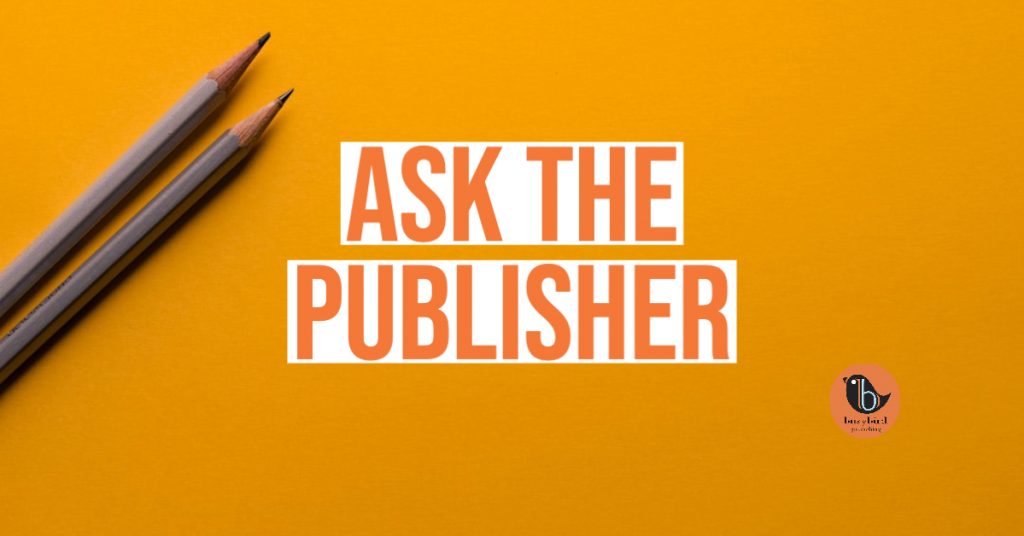
Are you looking for ways to publish your book? Does it feel like a minefield and you’ve heard lots of horror stories? Do your homework and it will be anxiety free, successful and fun! Here are some questions to ask a prospective publisher:
Do you charge any fees to publish?
If there are charges, the publisher is providing publishing services and is NOT a traditional publisher.
Do you provide a quotation for the services you provide?
When investing any sum of money, you should know exactly what you’re paying for so that there are no surprises at the end of the project.
Do you use qualified editors?
There is a big difference between a professional book editor and someone who is just good at spelling and grammar.
What is involved in the editing?
You need to determine what kind of editing you need. The publisher should be able to help you do this, based on the outcome that you want and the state of the manuscript as it stands. At a minimum, an editor will clean up the copy for spelling and grammar but also look for consistency in voice, flow of sentences, copyright issues, legal issues and overall professionalism of the text.
Do you use experienced book designers?
The book cover is a vital part of the marketing of your book. This is not somewhere that you should be blasé about how it looks. A boring, badly designed cover could be the difference between failure and success of the book because it is the first impression.
Do you project manage the book tasks?
Every book is unique, even if the topic isn’t. There should be discussion about how the project runs and who takes care of what. Ideally, the publisher should take care of the logistics of the different tasks of the project so that the client can concentrate on marketing.
Do you take care of the ISBN, barcodes and library deposits?
To publish a book, you don’t have to have an ISBN (International Standard Book Number) but it is highly recommended if you want to sell online or through bookstores. When you register and ISBN, the book becomes a legal document and a copy of it must be deposited with the library in your state as well as the National library of Australia (please check requirements for your own country).
Do you retain any rights to my book?
If you are talking to a traditional publisher, they borrow your copyright for the duration of the contract but never actually own it. If you are self-publishing, you should have full control of your copyright at all times, as well as full control of the whole project.
Do you help sell the books?
This is an important question and you need to know this from the start. Some publishers will give guidance, others will charge a fee and others offer no marketing at all. There is no right or wrong, you just need to know for your own planning.
Do you take a royalty from the sales of the book?
Another important question because this is where you work out what your ROI is for your book project. If the publisher is helping you to sell the book, it’s fair that they ask for something in return for the time, like a commission or a set fee. If they aren’t selling it for you, they have no right to claim a royalty or fee.
Do I have full copyright of my book?
This should be spelled out in the agreement between you and the publisher. No matter what, you always own the copyright of your work but there may be a period of time that the publisher borrows the copyright for a term of the contract.
Do I have full control over the look and feel of my book?
Again, this depends on your agreement. If being traditionally published, they pay for everything, so it’s reasonable that they also control these aspects of the book. If you’re paying, you must have full control of everything. Publishers can of course give advice but it’s up to you to decide what to follow.
How long will it take to publish the book?
This does depend on a few things. Traditional publishing can take up to two years before books are in stores. Self-publishing, on average, is around three months.
Can you help get the book into bookstores?
Traditional publishers will be doing this as part of the project and will cover all costs. If self-publishing, there are a variety of ways to make this happen: by contacting bookstores yourself, using a book distributor or having global distribution by using a print on demand system.
I want a bestseller. Can you help with that?
No one can promise you a bestseller. You can cheat the algorithms on Amazon with an ebook by selling a handful of books and get a bestselling status but everyone knows it’s not really a bestseller and bookstores will refuse to stock your book if it has an Amazon #1 sticker on it. The big publishers can’t predict a bestseller. They can hope a certain book is one but in the end, only a small percentage will be. Concentrate on creating a fantastic book that everyone wants to read.
How much does it cost to self-publish a book?
How long is a piece of string? For a traditional publisher, their budget might be $50,000 AUS (they pay) but if you’re self-publishing it can cost as little as $2000 or as much as $20,000 depending on the scope of your project and the outcome you desire. Factors to account for are the publishing components like editing and design but also printing and promotion.
This list can be downloaded from our ‘freebies‘ page.
Blaise the book chick
Creativity versus productivity
April 29, 2020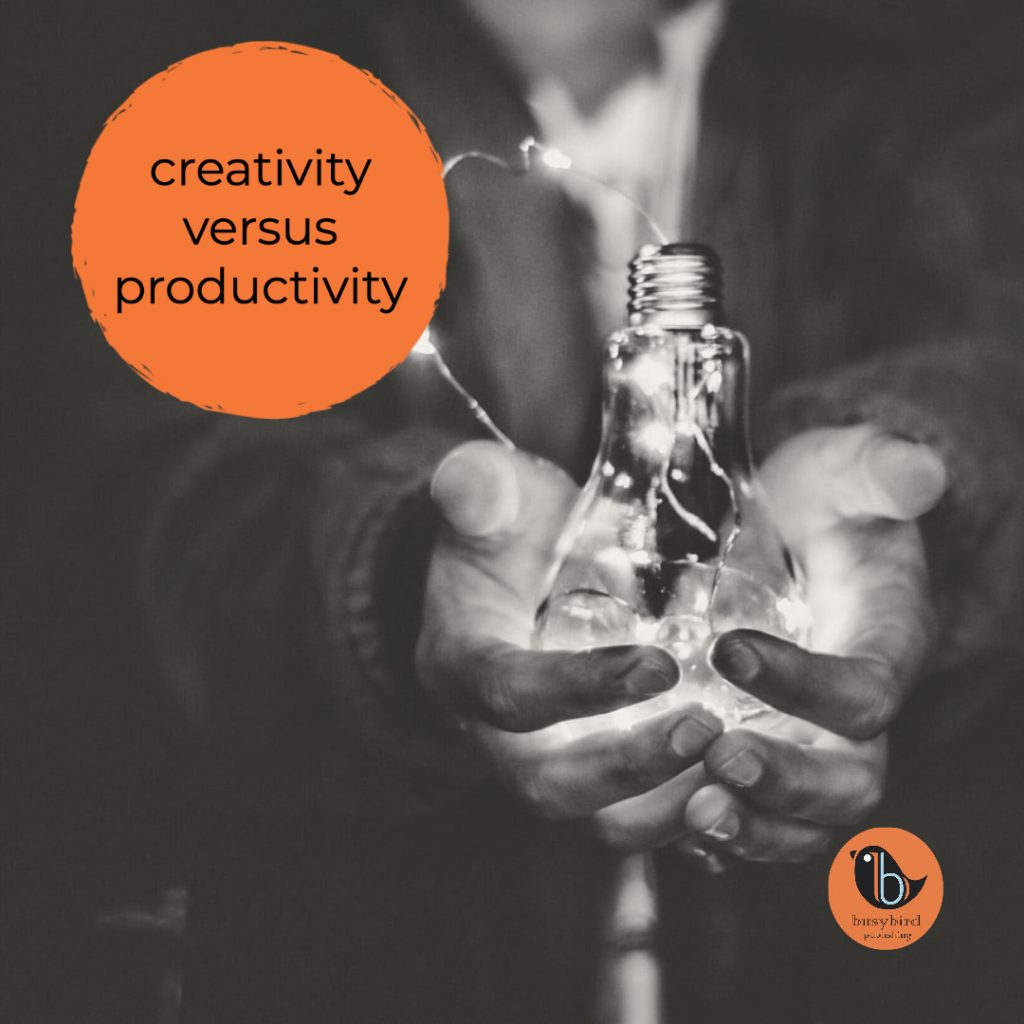
How are you? Climbing the walls? Languishing in the depths of a cosy couch with a book or Netflix? Writing your book with gusto? Feeling guilty because you have not written anything? Not. One. Single. Word?
Here’s the thing. We are at this moment turned upside down and inside out. It is the perfect time to complete projects that have been screaming at us and yet it’s all so hard – physically, financially and mentally challenging.
I live and breathe writing and publishing. I know all the excuses for not working on projects because I’ve heard them all and used them all myself. And every day this month I’ve been going live on Facebook to challenge these excuses and offer strategies to overcome them. Saying and doing are two different things, just as creativity and productivity are two unique creatures. Writing anything is two-fold.
First comes the fun, creative part
There is the initial seed of an idea, then playing around with that idea. Brainstorming, planning, thinking, talking, procrastinating, more playing, thinking, jotting down thoughts, throwing away ideas. We might do this for months before we feel like this is a serious project that should be put into some kind of digestible form.
Second comes the work, the productive part
At some stage, all that brainstorming and thinking needs to be lassoed into something. You may not exactly know how to do that but once you work it out, you really just need to sit your butt down and do the work. This can be boring, hard work and often we procrastinate and come up with all those excuses for why we shouldn’t or can’t do it.
Wherever you are in your own project right now, don’t beat yourself up about suddenly having all this time on your hands but not managing to produce the work you said you would. If you at least ‘turn up’ to your project often (more than once a week) and play with it, you are giving it energy that will keep it moving forward. Even better that you turn up daily for just ten minutes, give it some juice and make it feel loved. In this way, just like any relationship, you make it feel appreciated and it won’t leave you.
In the meantime, don’t underestimate the many things we can do to feed our own soul like cooking, gardening, walking, reading, watching Netflix to remind ourselves that we are human and need downtime when things are off-kilter. These things feed our creative core, which will help when we are at that creative stage of a project. And surprisingly, if you are turning up for your project often, it will be in your head more often and more ideas will flow to you while you’re relaxing on the couch or digging the soil.
Are you confused? Don’t I harp on about sitting down and writing that damned book? Well, yes, I do that a lot. But I also know that if you really want to write that book you will because it will keep calling you and we need to put the brakes on this ‘overnight’ thinking where we are in a hurry to do everything and suddenly we don’t know where our life went. It’s all a blur. We really do need to stop and smell the roses from time to time and be a little kinder to ourselves.
Blaise, the book chick.
